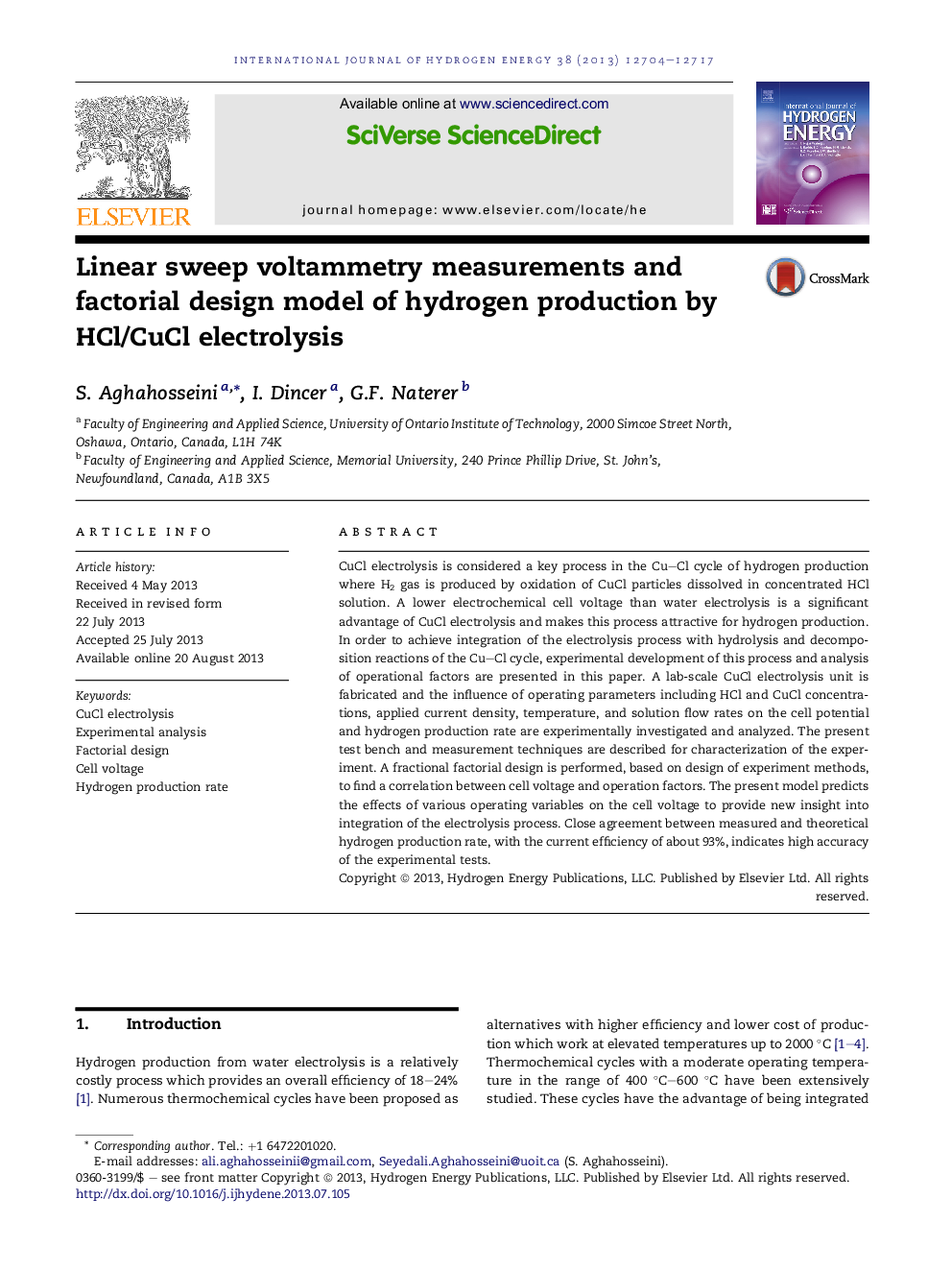| Article ID | Journal | Published Year | Pages | File Type |
|---|---|---|---|---|
| 7721410 | International Journal of Hydrogen Energy | 2013 | 14 Pages |
Abstract
CuCl electrolysis is considered a key process in the Cu-Cl cycle of hydrogen production where H2 gas is produced by oxidation of CuCl particles dissolved in concentrated HCl solution. A lower electrochemical cell voltage than water electrolysis is a significant advantage of CuCl electrolysis and makes this process attractive for hydrogen production. In order to achieve integration of the electrolysis process with hydrolysis and decomposition reactions of the Cu-Cl cycle, experimental development of this process and analysis of operational factors are presented in this paper. A lab-scale CuCl electrolysis unit is fabricated and the influence of operating parameters including HCl and CuCl concentrations, applied current density, temperature, and solution flow rates on the cell potential and hydrogen production rate are experimentally investigated and analyzed. The present test bench and measurement techniques are described for characterization of the experiment. A fractional factorial design is performed, based on design of experiment methods, to find a correlation between cell voltage and operation factors. The present model predicts the effects of various operating variables on the cell voltage to provide new insight into integration of the electrolysis process. Close agreement between measured and theoretical hydrogen production rate, with the current efficiency of about 93%, indicates high accuracy of the experimental tests.
Related Topics
Physical Sciences and Engineering
Chemistry
Electrochemistry
Authors
S. Aghahosseini, I. Dincer, G.F. Naterer,
